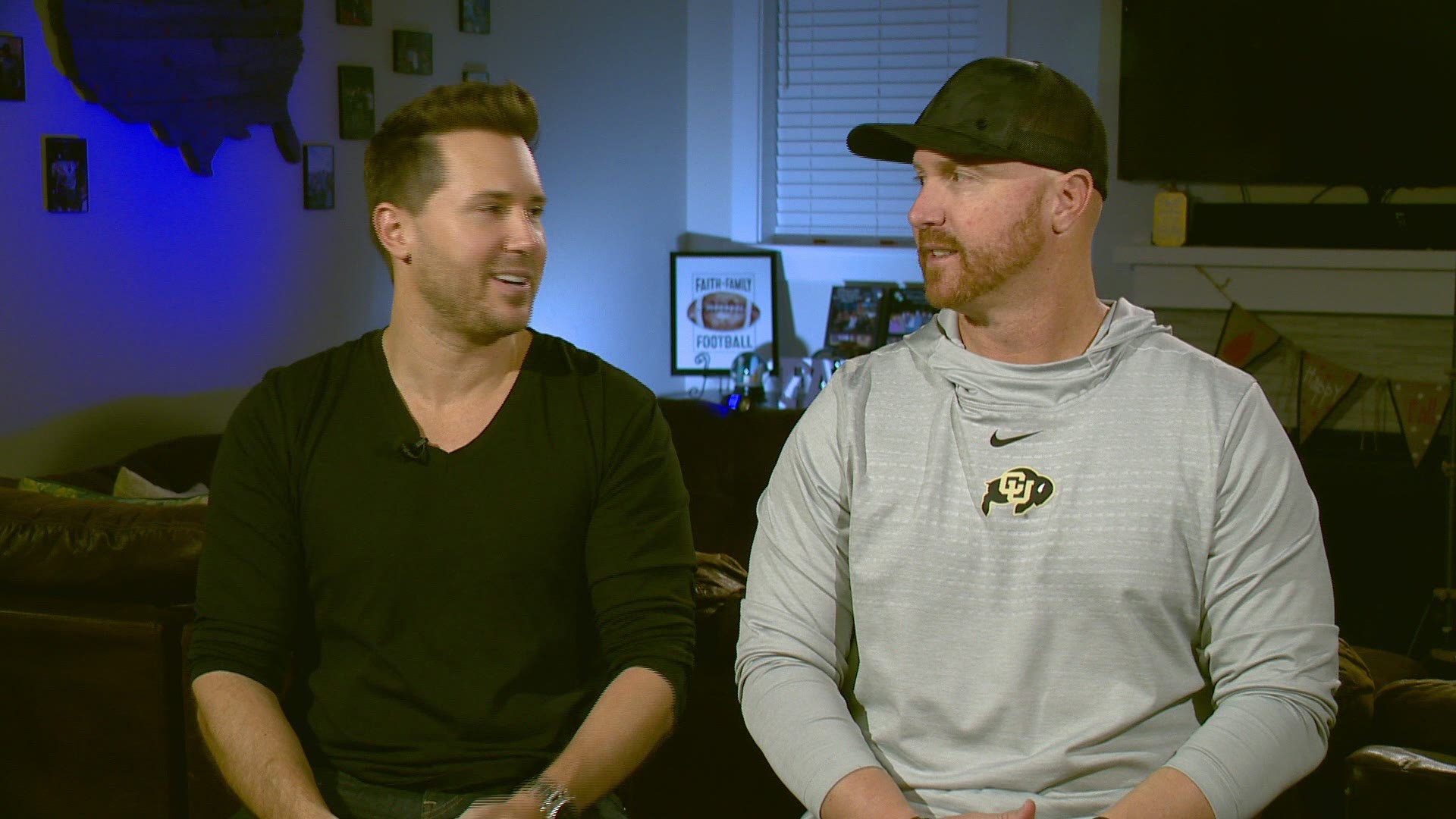Twins Darrin and Ryan Chiaverini are each a success professionally -- one is an assistant head football coach in the Pac-12, while the other is the host of a popular television show in Chicago.
Both played football at the University of Colorado - Boulder. Darrin Chiaverini was an outstanding wide receiver who went on to play in the NFL. Ryan Chiaverini was a walk-on who earned a scholarship and studied broadcast journalism. Now he's the host of "Windy City Live" in Chicago.
They've always celebrated one another’s achievements.
“When he (Darrin) was playing in the NFL and he made a big play, I felt like I made the play," Ryan Chiaverini said. "There was never any jealousy there. When my TV career started doing well he was always rooting me on and wanting to see my clips. So it’s a really special bond.”
The two got a taste of fatherhood early in life. They were 11 years old when their little brother Zach was born. They said they remember Zach as the comedian in the family and the little guy who traveled to every sporting event to cheer on his big brothers.
They never expected to lose Zach Chiaverini at age 20 when he took his own life.
“Sometimes you don’t see it coming, and that’s why I think it’s important for people that are struggling … you have to reach out if you’re struggling," Darrin Chiaverini said. "Because if you don’t, you’re going to make a decision that you can’t change. It’s final. We still struggle with that as a family."
If you are struggling, there is help. Colorado Crisis Services is available to talk or text any hour of any day. Call 1-844-493-8255 or text "talk" to 38255.
Darrin and Ryan Chiaverini said they didn’t talk about Zach’s suicide for many years. Now, they make it a point to share their story. They hope others realize there’s nothing weak or wrong about asking for help.
“If your arm is broken, you go to the doctor and you’re not judged for it," Ryan Chiaverini said. "People are so worried that if you think you have something wrong mentally, people are going to look at you like you’re crazy. Thing is, get help. We would do anything to be able to get our brother back and you don’t get do-overs on that.”
RELATED: Robbie’s Hope introduces new tool to help parents talk to kids about depression and anxiety
MORE RESOURCES:
WARNING SIGNS
The Suicide Prevention Lifeline website lists these as risk factors and warning signs when it comes to suicide:
RISK FACTORS
- Mental disorders, particularly mood disorders, schizophrenia, anxiety disorders, and certain personality disorders
- Alcohol and other substance use disorders
- Hopelessness
- Impulsive and/or aggressive tendencies
- History of trauma or abuse
- Major physical illnesses
- Previous suicide attempt(s)
- Family history of suicide
- Job or financial loss
- Loss of relationship(s)
- Easy access to lethal means
- Local clusters of suicide
- Lack of social support and sense of isolation
- Stigma associated with asking for help
- Lack of healthcare, especially mental health and substance abuse treatment
- Cultural and religious beliefs, such as the belief that suicide is a noble resolution of a personal dilemma
- Exposure to others who have died by suicide (in real life or via the media and Internet)
WARNING SIGNS
- Talking about wanting to die or to kill themselves
- Looking for a way to kill themselves, like searching online or buying a gun
- Talking about feeling hopeless or having no reason to live
- Talking about feeling trapped or in unbearable pain
- Talking about being a burden to others
- Increasing the use of alcohol or drugs
- Acting anxious or agitated; behaving recklessly
- Sleeping too little or too much
- Withdrawing or isolating themselves
- Showing rage or talking about seeking revenge
- Extreme mood swings
SUGGESTED VIDEOS | Local stories from 9NEWS


